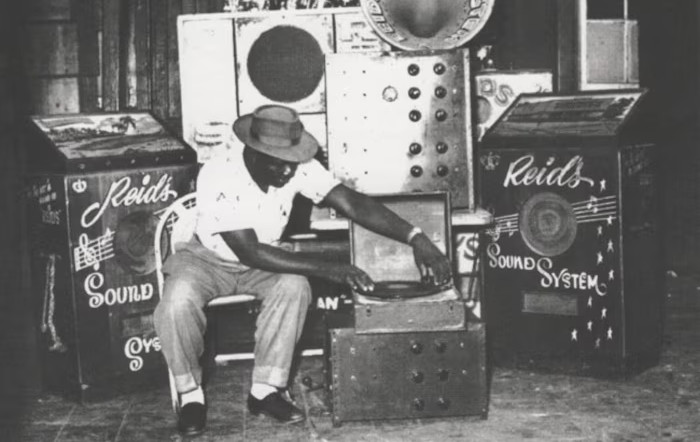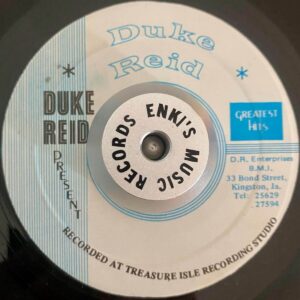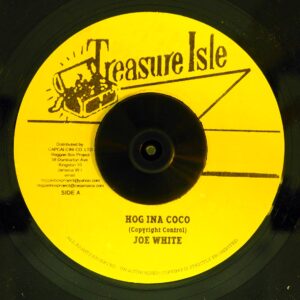Renowned as a record producer and entrepreneur, Duke Reid was a crucial figure in the inception of the Jamaican music industry, an enigmatic character with a lasting impact on the music scene.
According to some sources, Arthur ‘Duke’ Reid was born in the parish of Portland, Jamaica, in 1915, while others claim it was in 1923. He moved to Kingston as a teenager and became a police officer for ten years. He quit the job to help his wife run her successful grocery store, which they eventually named Treasure Isle Liquor Store.
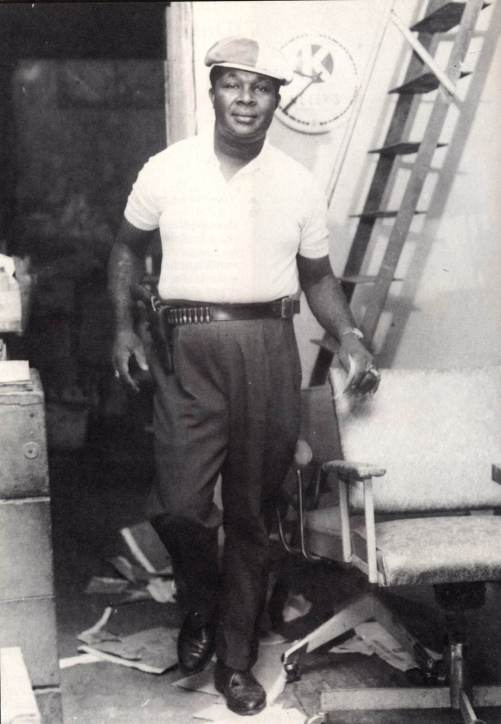
Reid’s imposing and extravagant demeanor in his prime resulted from his previous role as a police officer. He was known for his tough-guy image, often showcasing a loaded revolver and ammunition belt. Yet, he was also friendly and soft-spoken. Most of all, he was a longtime music lover. He started attracting more customers to the grocery store by playing records outside.
Duke Reid’s involvement in Jamaica’s music business began in the 1950s, when he hosted his radio show, Treasure Isle Time, and launched the ‘Duke Reid The Trojan’ sound system. Reid’s nickname came from the British-made Trojan vans used to transport his records and stereo equipment from one venue to another.
Just like his main competitor Clement “Coxsone” Dodd, Reid started his musical career as a deejay, then became a sound system owner, and eventually opened music labels – most notably Trojan and Treasure Isle – in the 1960s, becoming a successful producer who masterminded some of the most incredible Jamaican music.
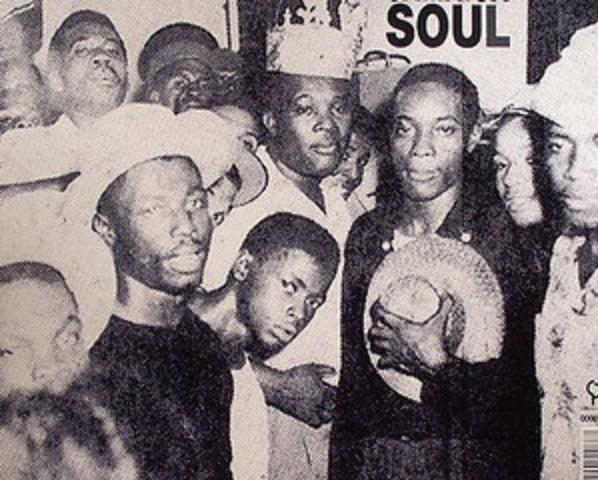
The rivalry between Duke Reid and Coxsone began with their sound systems, mainly between 1956 and 1958. At the time, having exclusive songs was very important to a sound system’s success, and the two deejays would scratch out the titles and labels on their records and rename them to protect their identities. It is said that Reid once stumbled upon a copy of one of Dodd’s iconic songs and unveiled it during a sound system showdown, leaving Coxsone surprised and disheartened.
The Duke’s labels issued several ska hits between 1962 and 1965, including songs by the Skatalites, Stranger Cole and the Techniques. In the mid-1960s, as the rocksteady beat developed, Reid’s Treasure Isle became Jamaica’s most famous label (overtaking Dodd’s Studio One). Between 1966 and 1968, Reid produced fine records with Alton Ellis, the Paragons, the Ethiopians, and Phyllis Dillon. His new house band – Tommy McCook & The Supersonics – contributed to the success of these records in the peak years of rocksteady.
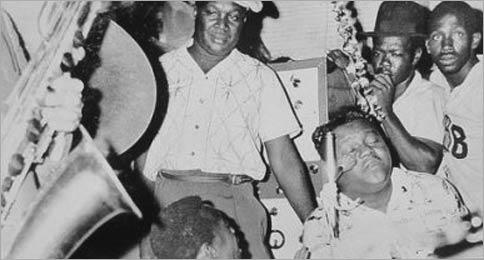
The Trojan was not impressed by the arrival of roots reggae and its messages of social protest on the music scene. But another new trend would catch his attention in 1970 when John Holt, lead singer of the Paragons, brought dancehall pioneer U-Roy to Reid’s studio. The producer was immediately struck by the DJ and had the idea of having him toast over pre-existing rhythm tracks from past Treasure Isle hits.
The outcome was incredibly well-received: at a certain point, four of U-Roy‘s initial singles simultaneously hit positions in the Jamaican Top Five. Reid continued producing U-Roy in the early ’70s, drawing from his extensive back catalog for content. He also released records by other early DJs, with Dennis Alcapone being a notable example.
Regrettably, Reid’s health seriously declined in 1974, and he died of cancer the following year. In 2007, the Duke was posthumously awarded the Order of Distinction for his contribution to Jamaican music.
Sources:
Biography by Steve Huey on allmusic.com
Biography by Laurence Cane-Honeysett @ Trojan Records
Photos from redbullmusicacademy.com, jamaicans.com and Duke Reid’s Treasure Isle on Facebook

